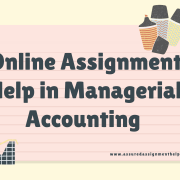3000 word essay (100%). The essay title and guidance notes are below.
Essay title
By identifying the implications of Brexit on cross-border trade, investment, information, and people flows, critically argue whether post-Brexit UK will be more or less globalised than pre-Brexit UK.
Notes on the Essay
In the depth index of globalisation, Ghemawat and Altman (2013) measures the extent of globalisation of countries. Their composite index is constructed by taking into account of cross border flows in four categories (pillars): trade, capital, information, and people flows. United Kingdom is ranked high in their globalisation index as well as in some of the four pillars. In this essay, first you need to identify the implications of Brexit on cross border activities of UK in these four pillars. Then you need to argue whether post-Brexit UK will be more or less globalised than pre-Brexit UK.
Here are some articles to start off with…
Ghemawat, P. & Altman, S. A. 2013. Depth Index of Globalization: And the Big Shift to
Emerging Economies: IESE Business School.
Ghemawat, P. & Altman, S. A. 2014. DHL Global Connectedness Index 2014: Analyzing
global flows and their power to increase prosperity.
Cumming, D. J. & Zahra, S. A. 2016. International Business and Entrepreneurship
Implications of Brexit. British Journal of Management, forthcoming.
Ghemawat, P. (2016) Beyond Brexit: An Initial Analysis and Questions for the AIB
Community. AIB Insights Vol.16, No 3.
The Economist Intelligence Unit 2016, Out and down: Mapping the impact of Brexit: A
report by The Economist Intelligence Unit.
Driffield, Nigel and Karoglou, Michail, Brexit and Foreign Investment in the UK. 2016.
Available at SSRN: http://ssrn.com/abstract=2775954
HODGE, N., 2016. Uncertainty Abounds After Brexit Vote. Risk Management, 63(6), pp. 4-
7.
Brexit and FDI (2016). Economic Outlook, 40(2), 26-30, doi:10.1111/1468-0319.12216.
Guidance on tackling your essay
I suggest that you address the question in the following way:
Stage 1 – broad reading
To answer the essay question, you will need to read widely around the topic. You need to find and read academic articles, mainly academic journal articles, relevant to the essay question. Few references are given below each essay question but this is not an exhaustive list, you need to do your own literature review.
Stage 2 – selecting material which is relevant
Having undertaken wide reading, you need to bring your ideas together. Try to make a list of the theories/concepts/arguments you have identified and ensure that you understand them (this might mean doing some further work). What issues are interesting here – do all of the authors agree with one another?
Stage 3 – organising the material you have identified into an argument
This is creative part which demonstrates that you are able to undertake ‘critical’ and ‘evaluative’ work. Your task is to convey that you have understood the available literature, bring in your own arguments and put them together in a meaningful and original manner (not copying other people). You need to think about the logical way of grouping different ideas and how you can best convey that.
Stage 4 – drafting your essay
Essays take a long time to construct and everybody goes about it in a different way. It is likely that you will have to draft it and edit it a number of times. The first attempt may look very rough.
Stage 5 – polishing your essay
Edit, edit, edit. Check that your introduction refers to the question. Make sure your references are presented in the right format. Does your essay have a conclusion? What makes your work original and interesting?










